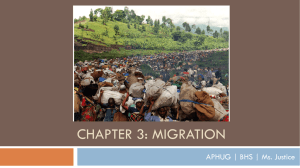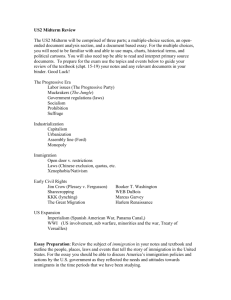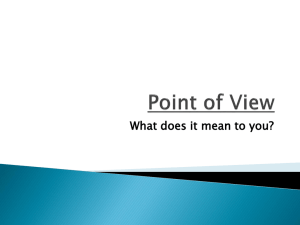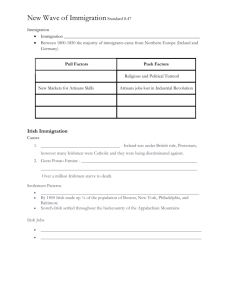eu immigration policy - economical and social dimension
advertisement
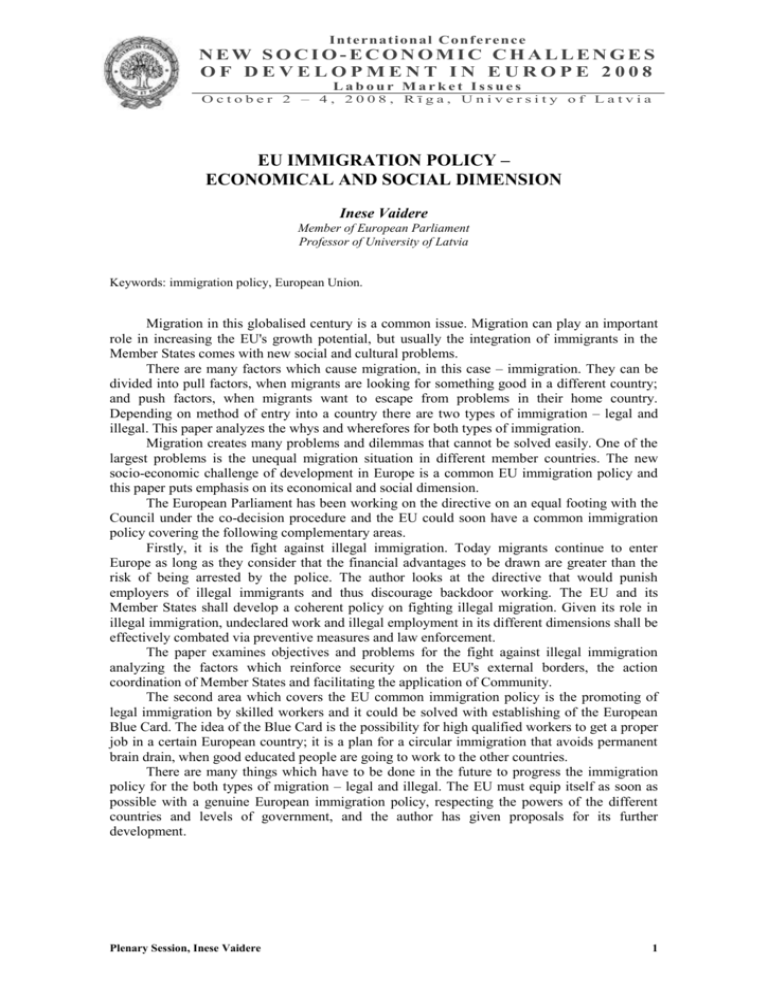
In te r n at ion al Con f e re n c e NEW SOCIO-ECONOMIC CHALLENGES OF DEVELOPMENT IN EUROPE 2008 Labour Market Issues October 2 – 4, 2008, Rīga, University of Latvia EU IMMIGRATION POLICY – ECONOMICAL AND SOCIAL DIMENSION Inese Vaidere Member of European Parliament Professor of University of Latvia Keywords: immigration policy, European Union. Migration in this globalised century is a common issue. Migration can play an important role in increasing the EU's growth potential, but usually the integration of immigrants in the Member States comes with new social and cultural problems. There are many factors which cause migration, in this case – immigration. They can be divided into pull factors, when migrants are looking for something good in a different country; and push factors, when migrants want to escape from problems in their home country. Depending on method of entry into a country there are two types of immigration – legal and illegal. This paper analyzes the whys and wherefores for both types of immigration. Migration creates many problems and dilemmas that cannot be solved easily. One of the largest problems is the unequal migration situation in different member countries. The new socio-economic challenge of development in Europe is a common EU immigration policy and this paper puts emphasis on its economical and social dimension. The European Parliament has been working on the directive on an equal footing with the Council under the co-decision procedure and the EU could soon have a common immigration policy covering the following complementary areas. Firstly, it is the fight against illegal immigration. Today migrants continue to enter Europe as long as they consider that the financial advantages to be drawn are greater than the risk of being arrested by the police. The author looks at the directive that would punish employers of illegal immigrants and thus discourage backdoor working. The EU and its Member States shall develop a coherent policy on fighting illegal migration. Given its role in illegal immigration, undeclared work and illegal employment in its different dimensions shall be effectively combated via preventive measures and law enforcement. The paper examines objectives and problems for the fight against illegal immigration analyzing the factors which reinforce security on the EU's external borders, the action coordination of Member States and facilitating the application of Community. The second area which covers the EU common immigration policy is the promoting of legal immigration by skilled workers and it could be solved with establishing of the European Blue Card. The idea of the Blue Card is the possibility for high qualified workers to get a proper job in a certain European country; it is a plan for a circular immigration that avoids permanent brain drain, when good educated people are going to work to the other countries. There are many things which have to be done in the future to progress the immigration policy for the both types of migration – legal and illegal. The EU must equip itself as soon as possible with a genuine European immigration policy, respecting the powers of the different countries and levels of government, and the author has given proposals for its further development. Plenary Session, Inese Vaidere 1

